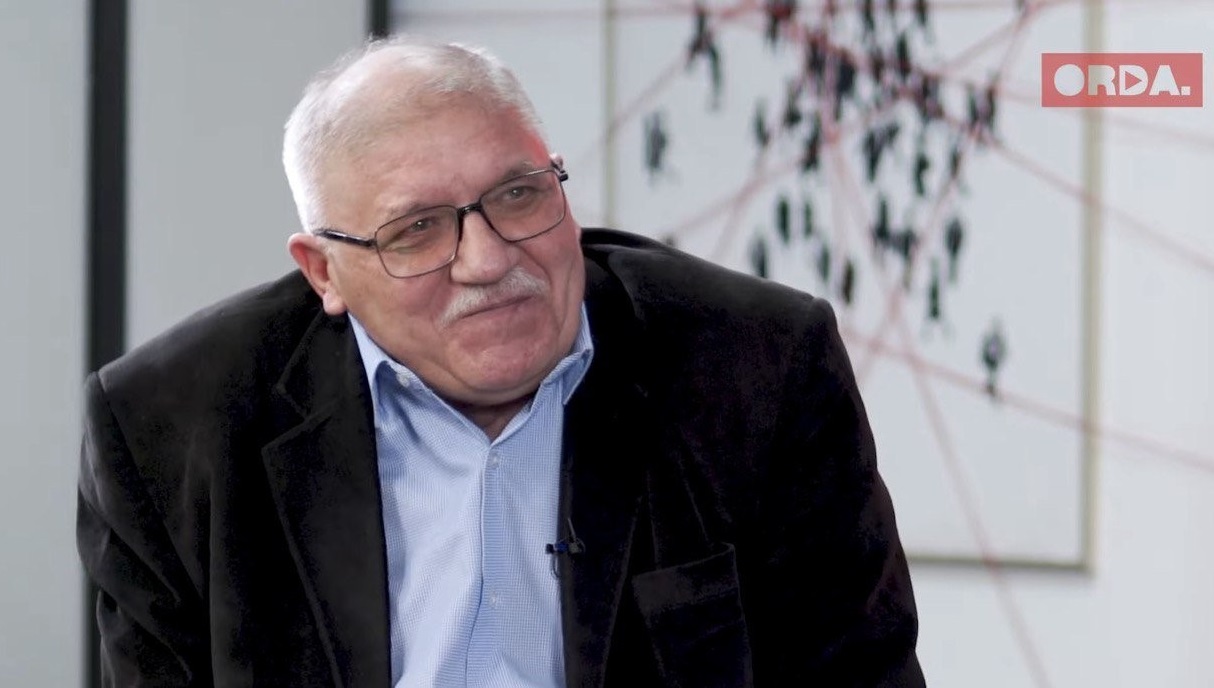The Kazakh political scientist: Tokaev's gamble between East and West
Analyst Syroežkin - freed from prison after being convicted in 2019 of ‘treason’ - analysed the state of Kazakhstan's relations with China in a television interview: ‘The president is one of the few Kazakhs who can understand Chinese policy: he tries to pursue an effective balance with Moscow. But his promises about a new and just country still remain limp’.
Astana (AsiaNews) - On the portal Horde. kz, an important interview by editor Gulnara Bažkenova with Kazakh political scientist and sinologist Konstantin Syroežkin was published, commenting on the parallel relations between China and Kazakhstan, as well as on the issues of the Kazakh judicial system and the case of Karim Masimov, the former chairman of the Security Committee arrested three years ago for the riots and harsh repressions in Almaty in Kandy Kantar, the ‘tragic January’ that shortly preceded the Russian invasion of Ukraine, and which profoundly determined the country's development in recent years.
Syroežkin himself had been convicted in the autumn of 2019 for high treason, but was later released from prison in April 2024 due to the granting of a pardon by President Kasym-Žomart Tokaev, which has not yet been granted to Masimov.
The sinologist recalls that Xi Jinping rose to the top of Chinese power in a rather uncertain phase between 2012 and 2013, and needed time to assemble a team of people loyal to him.
It was a long fight against corruption, which lasted at least five years, ‘but not so much that as a liberation of the party from factions and clans’, explains the expert, noting that President Tokaev is still a long way from achieving a similar result in Kazakhstan.
On the other hand, Syroežkin recalls that Tokaev also had experience working in China and is himself a sinologist, and thus ‘is one of the few Kazakhs who can understand Beijing's politics’.
Quoting a Chinese saying, he assures that ‘Tokaev is able to walk among the raindrops’, in such a complex period as the one we are living through, seeking an effective balance between the influences of China and Russia.
Drawing on his diplomatic experience, the Kazakh president ‘always refers to the UN statutes, does not recognise any reason for conflict between Moscow and Beijing, and considers it an advantage for Kazakhstan to be in the middle of the two’, believing Astana to be the true ‘world balance point between East and West’.
As for Tokaev's proclamations about the ‘new and just Kazakhstan’, perplexity is still rife here, as the Kazakh judicial system ‘is very lame and sometimes does not work at all’, the political scientist asserts.
In China, the courts work, and sentences are carried out in exemplary form, whereas in Kazakhstan ‘there is a lack of control over the execution of sentences, and officials often live with a sense of impunity’. The most sensational and resonant cases are often kept secret, to avoid interference.
The entire investigation into Masimov remains under the Soviet evocation Soveršenno Sekretno (‘Top Secret’), as do materials involving relatives of former president Nursultan Nazarbaev, his nephews Samat Abiš and Dikij Arman, while Syroežkin believes that ‘the Kantar trials should have been open, because people need to be able to understand what happened, and in any case an open trial makes the investigation more solid and disciplined’.
Not all decisions to secrete cases are legal, and one ends up making any information inaccessible, even information that is not related to investigative activities.
Syroežkin's conviction was linked to Masimov's responsibility when he was at the top of the government, although the two did not cross paths. The political scientist was conducting a journalistic investigation into corruption in Astana, and there were connections with the Chinese and Russians, who may have been involved at various levels.
By divulging confidential information, the situation had become complicated to the point where it was unclear who was behind the various financial and partly political machinations, giving an example of how Kazakhstan still struggles to get rid of its big bosses.
12/02/2016 15:14







.png)










